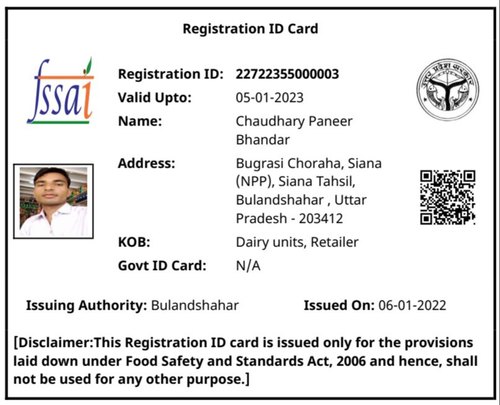The Food Safety Standards Authority of India (FSSAI) is an autonomous organisation under the Ministry of Food Processing Industries, Government of India. It was established on 20 July 1997 by the Food Safety and Standards Act, 1996. FSSAI is entrusted with the responsibility of establishing and maintaining food safety standards in India. The organisation has its head office at Mumbai, Maharashtra and a regional office at New Delhi, Delhi.
FSSAI Licence
The Food Safety Standards Authority of India (FSSAI) is the national authority responsible for ensuring food safety in India. The FSSAI has a licence to regulate food safety and hygiene in India. The FSSAI is also responsible for issuing quality certification to food products. The FSSAI conducts research on food safety and hygiene issues.
FSSAI Overview
FSSAI is the autonomous body that regulates food safety in India. The agency was set up in 2002 and is headquartered in New Delhi. FSSAI has a mandate to protect public health by ensuring that food products are safe to consume. The agency also has the responsibility to promote food safety through regulation and education.
The agency’s core functions include monitoring and regulating food safety, conducting scientific research on food safety, providing guidance to industry, and promoting food safety education. FSSAI also maintains a national database on food safety incidents.
In 2013, FSSAI launched a mobile app called Food Watch which provides consumers with real-time information about recalls of unsafe foods. Food Watch is available for download from the App Store and Google Play.
FSSAI operates under the aegis of the Ministry of Health and Family Welfare. The agency is funded by the government revenue and employs around 560 staff including scientists, inspectors, data analysts, and support staff.
Types of Foods
The Food Safety Standards Authority of India (FSSAI) was established in 2006 under the aegis of the Ministry of Health and Family Welfare. The mandate of FSSAI is to develop and enforce food safety standards in India. FSSAI has three main functions: to develop food safety standards, to promote the use of food safety standards, and to enforce food safety standards. Food safety standards are voluntary guidelines that must be met by manufacturers in order to sell their products in India. In addition, FSSAI also provides training to individuals and organizations on how to use food safety standards and how to promote their use.
There are a variety of types of foods that fall under the jurisdiction of FSSAI. These foods include processed foods, raw foods, frozen foods, refrigerated foods, shelf-stable foods, irradiated food, hazardous food, pre-packaged food products, infant formula products, honey, spices and herbs for human consumption, animal feed products for human consumption and veterinary medicines for human consumption. Each type of food has its own specific requirements for safe manufacturing and distribution. For example, processed foods must be cooked thoroughly before they are served to the public, raw foods must be properly prepared and handled
Precautionary Measures
The Food Safety Standards Authority of India (FSSAI) has come up with a new set of food safety standards for the country. The standards were released on 20 January 2019 and are aimed at ensuring safer food for consumers.
The FSSAI has introduced a new category of food called “emergency food”, which includes items such as ready-to-eat meals, chocolates and other confectionery items that are meant to be consumed in an emergency. These foods will now require specific safety certifications from the FSSAI in order to be sold in the country.
The new standards also require manufacturers to put information about food ingredients on product labels. This will allow consumers to make informed decisions about what they eat.
To help ensure compliance with the new standards, the FSSAI has launched a online portal called “Food Safety Traceability System”. This portal provides information on food ingredients, manufacturing processes and safety tests that have been carried out on these products.
\ nYou can find out more about the new food safety standards and how they will impact you by reading our article
How to get a FSSAI Licence?
The Food Safety Standards Authority of India (FSSAI) is a statutory body that regulates food safety in India. To obtain a FSSAI licence, applicants must meet certain eligibility requirements and pass an entrance exam. FSSAI licence are required to produce, process, pack and transport food products in India.
The Benefits Of Shop Licence For Retail Business
Shop Licence is an important tool for the protection of your business. Licence gives you the authority to operate your retail business in a specific area, and it gives customers peace of mind that they are buying product from a legitimate retailer.
Licence also ensures that your business meets certain food safety standards, which can be important if you are selling food products to the public. Licence is not required for all retail businesses, but it is recommended for those who sell food products to the general public.
Licence can provide you with many benefits, including:
– increased sales due to increased trust from customers
– reduced risk of prosecution due to compliance with food safety regulations
– enhanced reputation as a reputable retailer
– easier access to financing, since licensed businesses are often more creditworthy than unlicensed businesses
Interesting Information about mangaowl
Read also: avple

